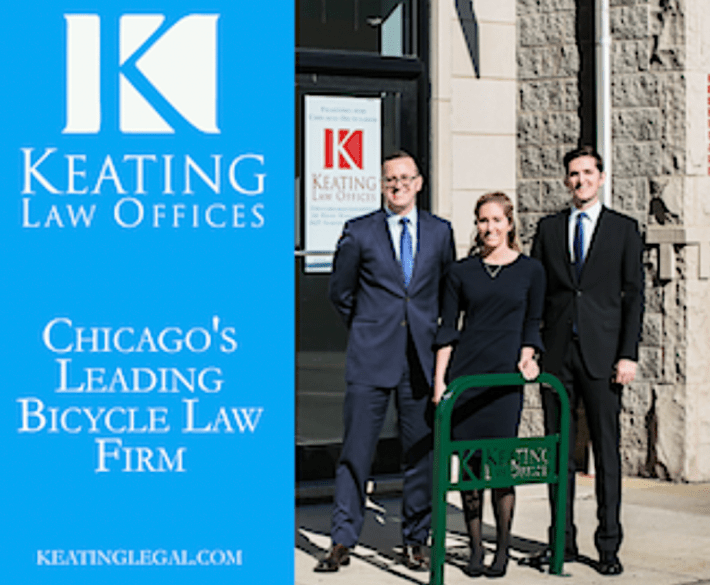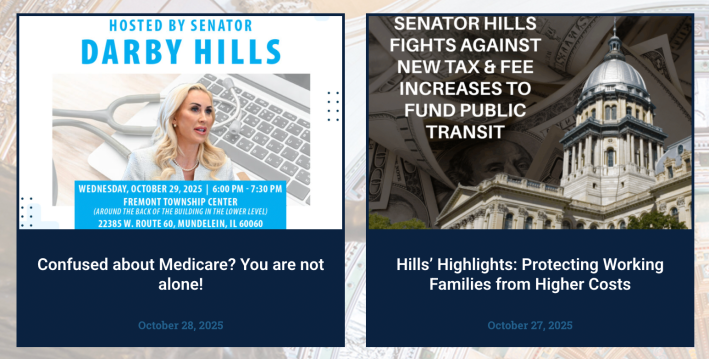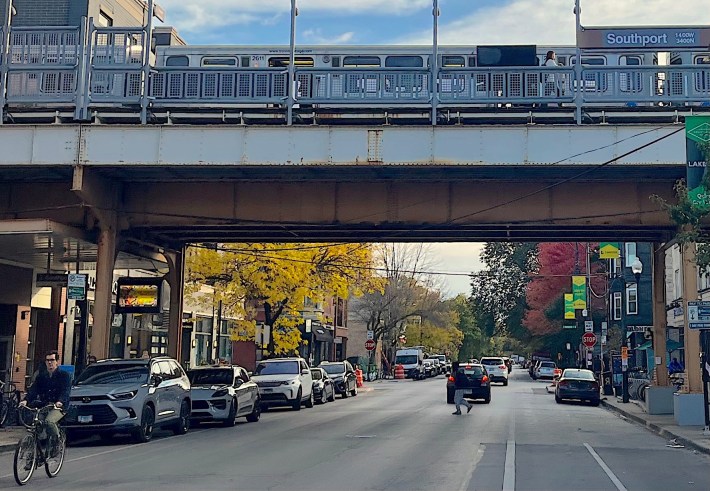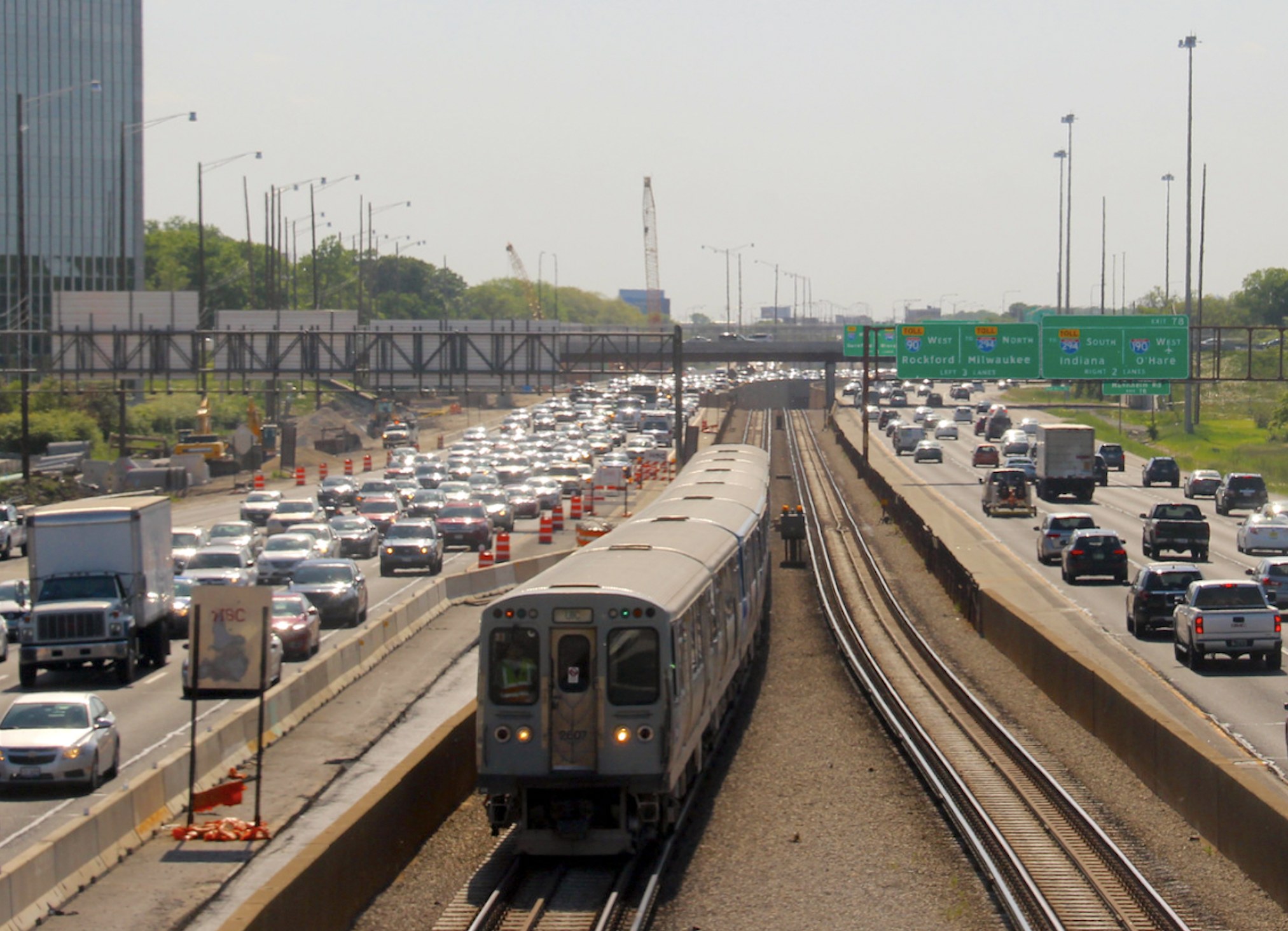
By Ellen Steinke
Last week during Illinois General Assembly's fall veto session, I went down to Springfield with a group of transit advocates to talk with lawmakers about funding and governance reform for Chicagoland’s transit system.
I wasn’t sure what to expect. But what struck me was how much agreement there actually was. Nearly every legislator I spoke with – Democrats and Republicans alike – said they believe transit is essential to Illinois' economy and quality of life. Even GOP politicians like Sen. Don DeWitte and Sen. Darby Hills, who often part ways with other Chicagoland politicians, said they wanted to see transit succeed. But there are differences of opinion about how to fund it.

Lawmakers on both sides of the aisle said they didn't want to raise revenue for public transportation in a way that could be could be seen as "regressive." That was the watchword of the day. Democrats worried about raising the cost of living when inflation is still squeezing residents. Republicans said their constituents are tired of paying more for less.
I understand those concerns. Nobody wants to burden working families. But what’s more regressive than forcing people to own a car?
According to AAA's 2024 "Your Driving Costs" report, the average annual cost of owning and operating a car is now over $12,000 per year, which is over 14 percent percent of the median U.S. household income of $83,730. For a two-car household, that’s essentially reducing the overall household income by almost 29 percent. Those costs hit lower- and middle-income families the hardest, especially in areas where transit options are shrinking.
The veto session wraps up on Thursday, and transit funding strategies are currently being debated in Springfield. These include a 10 percent ride-hail tax, an additional 50 cent tollway fee, and a $1.50 fee on restaurant and retail items, which Streetsblog Chicago calls the "Burrito Taxi Tax." For most households, these would be relatively modest additional expenses.

And according to Regional Transportation Authority officials during their October 15 Executive Committee hearing, these regional fees are being prioritized to avoid statewide impacts. The officials said multiple times that this is in response to Downstate politicians who were hesitant to approve new fees for their constituents who may not use Chicagoland transit transit. In practice, that means most revenue would be collected within the six-county RTA region, where residents regularly use and depend on the system.
It's worth noting that transit reform/funding bill HB 3438, which passed the State Senate, but not the House last May, would raise $1.5 billion for Northeast Illinois transit, but also $200 for systems elsewhere in the Land of Lincoln. In addition, every $1 invested in the CTA, Metra, and Pace results in $13 in economic output, which benefits Illinoisans from Cairo to Galena.
Granted, the proposed driving-related fees aren’t chicken feed. But they're nowhere near the cost of owning a car, let alone two of them.
What’s often overlooked in the debate over so-called "regressive" surcharges is that the alternative is even more fiscally unfair. When people are forced into car ownership because bus and train service is infrequent, unreliable, or non-existant, they spend many thousands more each year on gas, insurance, repairs, and depreciation.

Meanwhile, the State of Illinois a year spends billions maintaining roads, and expanding highways in a Sisyphean attempt to relieve increasingly frequent traffic jams. More than 75 years of urban planning scholarship shows that widening highways doesn’t solve congestion. Instead, it induces more driving and expands long-term costs.
In other words, we’re already paying for way too much transportation, but that spending isn't allocated economically, efficiently, or equitably. While Springfield politicians wring their hands over relatively low driving-related surcharges to fund transit, they're typically OK with funding car infrastructure, catering to the most expensive transportion mode. If they were truly worried about tax burdens, we’d be doubling down on transit funding, not backing away from it.
And the need for Prairie State lawmakers to avoid being penny-wise but pound-foolish is not just about fairness. Studies by Urban3 and the Argonne National Laboratory have shown that transit is one of the most effective economic multipliers government can invest in — especially in the Chicagoland region. Again, we have a 1:13 expenditures-to-benefits ration while the national average is closer to 1:5. Transit keeps people connected to jobs, attracts businesses, and saves households money they can spend elsewhere.
Even the Illinois lawmakers most skeptical of the proposed driving fees agreed on one thing. Transit is an economic accelerator, and if we let it hit a roadblock, the entire state will feel the slowdown.
So as legislators finish the veto session this week, I hope they remember that not all costs are created equally. A modest, largely regional motorist surcharge might look like a burden on paper, but it’s an investment in economic mobility, affordability, and sustainability.
So do Illinois state senators and reps really want to make the financial burden on their constituents less "regressive"? If so they can start by ensuring that as many people as possible can live their lives without spending $12,000 annually just to leave their homes.

Do you appreciate Streetsblog Chicago's paywall-free sustainable transportation reporting and advocacy? We officially ended our 2024-25 fund drive in July, but we still need another $42.5K+ to keep the (bike) lights on in 2026. We'd appreciate any leads on potential major donors or grants. And if you haven't already this year, please consider making a tax-deductible donation to help us continue publishing next year. Thank you!




